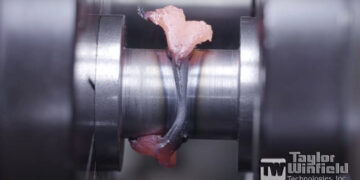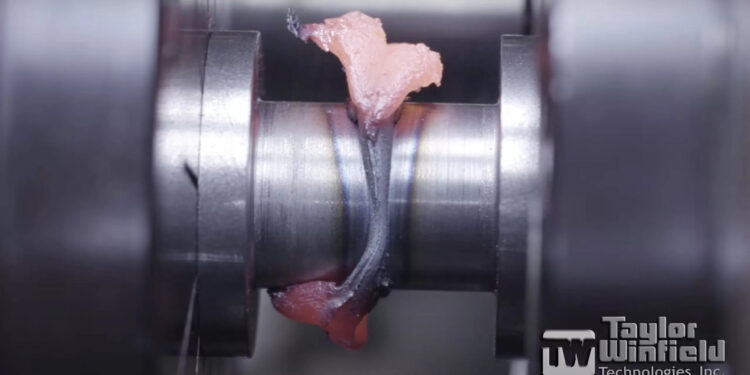Friction welding (FW) is a solid-state joining process that utilizes frictional heat, generated by the movement of one workpiece against another, to create a strong bond at the interface. Unlike fusion welding techniques like arc or gas welding, FW doesn’t involve melting the materials. This unique approach offers several advantages, making it a preferred choice for a variety of industrial applications.
Unveiling the Advantages of Friction Welding
- Clean and Precise Joins: Since there’s no melting involved, FW minimizes spatter, fumes, and distortion, leading to cleaner and more precise welds. This makes it ideal for applications requiring high aesthetic standards or working with sensitive materials.
- Joining Dissimilar Metals: FW excels at joining dissimilar metals that are often difficult or impossible to fuse weld due to differing melting points or chemical reactions. This opens doors for innovative product design and material combinations.
- Strong and Reliable Bonds: FW creates welds with near-parent metal strength, offering exceptional joint integrity and reliability. This is crucial for applications demanding high structural strength.
- Improved Material Properties: The frictional heat generated during FW refines the grain structure at the weld interface, often leading to improved properties like strength, ductility, and corrosion resistance.
- Reduced Consumables: Unlike processes requiring filler metals or fluxes, FW eliminates the need for additional consumables, minimizing overall welding costs.
- Fast and Efficient: FW offers rapid weld cycles compared to other joining methods, resulting in increased production throughput.
Applications of Friction Welding
The versatility of FW extends across various industries, including:
- Automotive: FW is widely used in the automotive sector for joining dissimilar metals in components like engine blocks, transmissions, and suspension systems.
- Aerospace: The aerospace industry utilizes FW for manufacturing critical aircraft components like landing gear, control surfaces, and engine parts due to its ability to join high-strength alloys.
- Medical: FW finds application in the medical device industry for joining components in orthopedic implants and surgical instruments due to its clean and precise welds.
- Electrical: Manufacturers in the electrical industry leverage FW for joining dissimilar metals in electrical connectors and power transmission components.
- Consumer Goods: Applications of FW extend to consumer goods like cookware, sporting goods, and electronics due to its ability to create strong and aesthetically pleasing welds.
Introducing the Leader of the Pack: Taylor-Winfield Technologies
Standing tall as a pioneer in the welding industry since 1885, Taylor-Winfield Technologies (TWT) has earned its reputation as a leading American supplier of friction welding machines. Their unwavering commitment to innovation and quality positions them at the forefront of this advanced joining technology.
TWT boasts a comprehensive portfolio of friction welding machines and supplies catering to diverse needs. Their machines offer:
- Rotary Friction Welding: This widely used method utilizes rotary motion of one workpiece against another to generate frictional heat. TWT offers a range of rotary friction welders with capacities suitable for a variety of applications.
- Linear Friction Welding: This technique employs a linear reciprocating motion to create the frictional heat for joining. Linear friction welders from TWT are ideal for applications requiring precise alignment and control.
- Orbital Friction Welding: This specialized method involves the orbital movement of one workpiece around another, enabling complex joint geometries. Orbital friction welders from TWT cater to unique joining requirements.
Beyond the impressive array of machines, TWT prioritizes customer satisfaction by providing exceptional after-sales services. Their dedicated team offers comprehensive support, including:
- Application Engineering: TWT’s experienced engineers collaborate with customers to ensure optimal machine selection and process development for their specific applications.
- Training and Support: They offer comprehensive training programs for operators and maintenance personnel, ensuring efficient and safe machine operation.
- Parts and Service: TWT provides a reliable supply of spare parts and prompt after-sales service to maintain machine uptime and productivity.
Other Notable American Suppliers of Friction Welding Machines
While Taylor-Winfield Technologies reigns supreme, the American landscape offers other noteworthy suppliers of friction welding machines:
American Friction Welding (AFW): A prominent subcontract friction welder, AFW specializes in direct-drive rotary friction welding for high-precision joining of dissimilar metals and near-net-shape parts.
It’s important to note that the “top supplier” designation can be subjective and depend on specific criteria like market share, product range, or customer focus. However, Taylor-Winfield Technologies’ long-standing reputation, commitment to innovation, and comprehensive customer support solidify their position as a frontrunner in the American friction welding machine supplier landscape.
The Future of Friction Welding in America
The future of friction welding in America appears bright. As industries continue to demand high-performance joining solutions for advanced materials and complex components, FW is poised to play an increasingly significant role .
Factors Driving Growth in American Friction Welding
Several factors contribute to the anticipated growth of friction welding in the American manufacturing landscape:
- Lightweighting Efforts: The growing emphasis on fuel efficiency and reduced emissions across industries like automotive and aerospace is driving the adoption of lightweight materials. Friction welding offers a reliable method for joining dissimilar lightweight materials like aluminum and composites, enabling the creation of strong yet lightweight structures.
- Additive Manufacturing Integration: The rise of additive manufacturing (AM) technologies like 3D printing presents unique challenges in joining dissimilar materials or post-processing printed components. Friction welding offers a complementary joining technique that seamlessly integrates with AM processes, creating robust and functional parts.
- Advanced Material Applications: The development of new and advanced materials with unique properties often presents challenges for traditional welding methods. Friction welding’s inherent ability to join dissimilar materials makes it a valuable tool for incorporating these advanced materials into innovative products.
- Automation and Robotics: As automation and robotics become increasingly integrated into manufacturing processes, the demand for reliable and repeatable joining techniques like friction welding will grow. Friction welding’s automated control systems and consistent weld quality make it well-suited for automated production lines.
The Role of American Suppliers in a Global Market
American friction welding machine suppliers are poised to play a vital role in this expanding market. Their strengths lie in:
- Technological Innovation: American companies have a long history of innovation in welding technology. This focus on continuous improvement ensures they remain at the forefront of developing advanced friction welding machines with improved capabilities and functionalities.
- Focus on Customization: American manufacturers often excel in providing customized solutions to meet specific customer needs. This allows them to cater to niche applications and complex joining requirements.
- Emphasis on Quality and Reliability: American-made machines are known for their high standards of quality and reliability. This translates to minimal downtime, consistent performance, and a lower total cost of ownership for end users.
Challenges and Opportunities for American Suppliers
While the future seems promising, American friction welding machine suppliers face some challenges:
- Global Competition: The market for friction welding machines is becoming increasingly globalized, with competition from established players in Europe and Asia.
- Skilled Workforce Shortage: The need for skilled personnel to operate and maintain sophisticated friction welding machines is a growing concern.
- Staying Ahead of the Curve: Continuous investment in research and development is crucial for American suppliers to remain competitive in the face of rapidly evolving technologies and material advancements.
Conclusion: A Collaborative Future for Friction Welding in America
The future of friction welding in America is a collaborative one. With continued advancements in technology, a focus on customer needs, and a commitment to a skilled workforce, American suppliers like Taylor-Winfield Technologies are well-positioned to lead the way. By embracing innovation and fostering partnerships with manufacturers across various industries, friction welding will undoubtedly play a pivotal role in shaping the future of American manufacturing.
Additionally, here are some potential areas for further exploration in this article:
- Case studies: Highlighting successful applications of friction welding in American industries can provide practical examples of the technology’s benefits.
- Environmental Benefits: Discussing the environmental advantages of friction welding, such as reduced energy consumption and minimal waste generation, can enhance its appeal in today’s eco-conscious environment.
- Emerging Applications: Exploring potential future applications of friction welding, particularly in conjunction with other advanced manufacturing technologies, can offer a glimpse into the exciting possibilities this technology holds.
By incorporating these elements, you can create a comprehensive and informative article that establishes the importance of friction welding machines and positions American suppliers, especially Taylor-Winfield Technologies, as key players in the industry’s future.























































